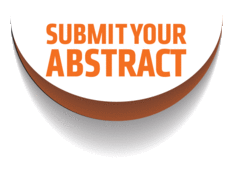
Francois Xavier Frapaise
Biosimilars Consultant Paris, France
Title: Leveraging gene-editing technology to enable production of low-cost biotherapeutics
Biography
Biography: Francois Xavier Frapaise
Abstract
Background: Many patients, particularly in low-income countries, still have limited or no access to life-changing, therapeutic proteins in the treatment of diabetes, cancer or autoimmune disorders. The current, CHO-based manufacturing processes and clinical development model of biosimilars are expensive; furthermore, in most cases, large phase three trials do not provide meaningful information on the clinical equivalence (efficacy/safety/immunogenicity) between biosimilars and reference compounds. At the same time, the development of state-of-the-art orthogonal analytical methods has enabled a better understanding of the structure and structure–function relationship of biotherapeutics. An important evolution of the regulatory landscape has been observed, but the recent development of “affordable copies of biologics” could provide wider access to biologics; yet, this poses significant scientific and regulatory challenges. Observations: In recent years, many agencies, such as EMA and the FDA, have accepted applications for compounds, like peg-filgrastim, insulin, LMWH when validated surrogate markers of efficacy are available, as long as a state-of-the-art chemistry, manufacturing, and controls (CMC) package, along with phase one studies, are applied. However other regulators, hospitals drug committees, and clinicians continue to request evidence of efficacy/safety in patients before approving/prescribing monoclonal abs biosimilars. Large phase three trials do not provide the requested safety information, as safety is virtually impossible to compare with reference compounds in a population in which approximately 90% have adverse events, such as cancer patients. Immunogenicity is also difficult to compare in subjects who are immunocompromised and/or receive immunosuppressant therapy. Running large and costly clinical trials that are not likely to provide the expected evidence also raises ethical concerns. Recently, low- and middle-income countries have licensed more affordable copies of biotherapeutic products that do not or may not fulfill the requirements of WHO guidelines. This new generation of biologics provides obvious access opportunities for patients in emerging countries as the capital investment needed for manufacturing proteins from this transgenic goat model is without comparison with that of current CHO-based process; however, this manufacturing process differs from the current CHO processes, which offers new opportunities of access to treatment in low-income countries but raises significant scientific, legal and regulatory challenges. Simplification, increased flexibility and harmonization of the regulatory requirements should be on the agenda of those defining health policies, particularly in emerging countries.
Conclusion: We believe that newer technologies, including new manufacturing processes, increased regulatory harmonization, better understanding of biosimilar development objectives and methods, education of all stakeholders on biosimilars/emerging biologics would help ensure that patients have early access to life-saving compounds, the vast majority of which cannot currently afford.

